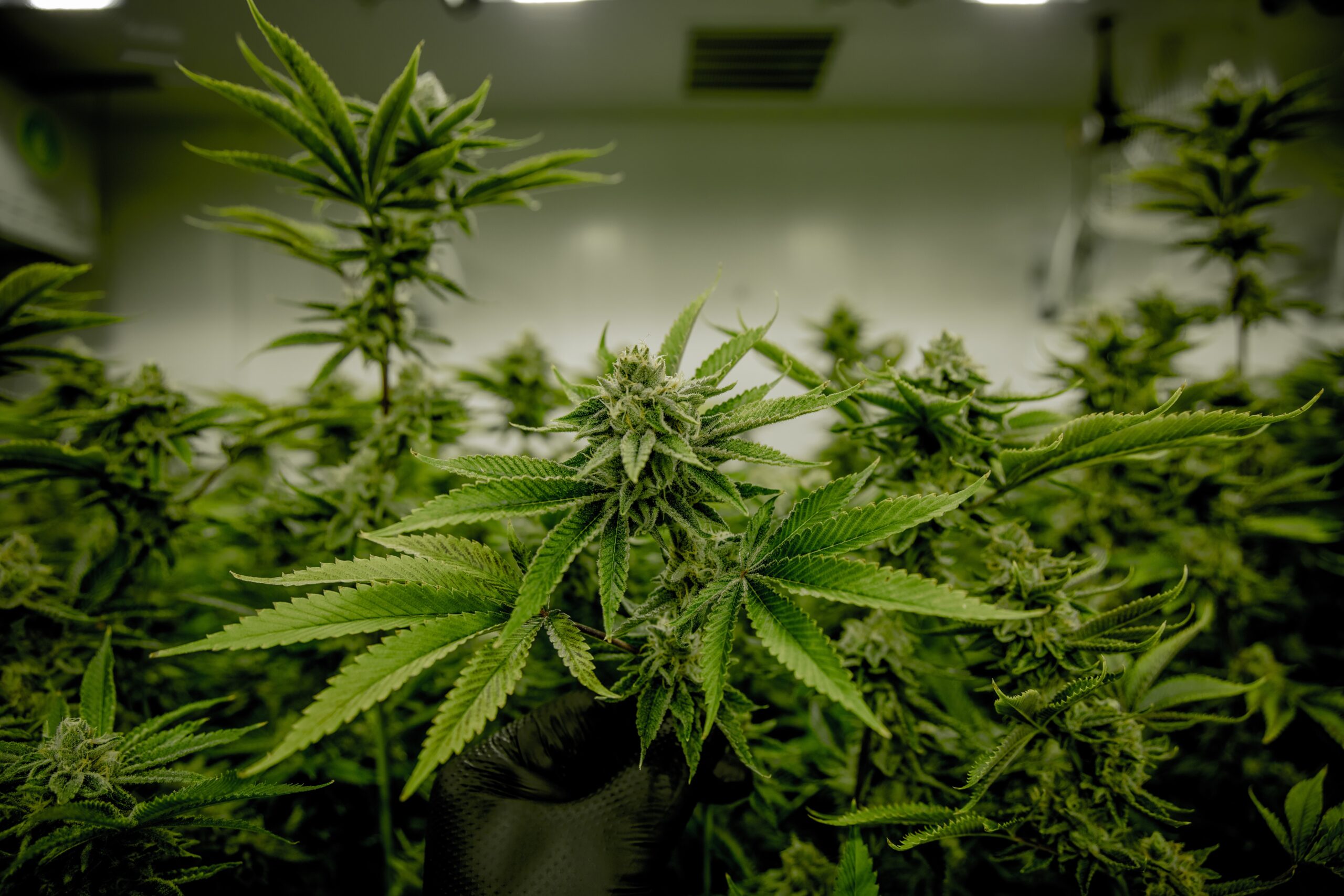In late August the Department of Health and Human Services recommended to the Drug Enforcement Administration (DEA) that cannabis be rescheduled under the Controlled Substances Act (CSA). The move comes on the heels of an extensive review conducted by the Food and Drug Administration, and after an executive request that the U.S. Attorney General conduct a review regarding the rescheduling of marijuana under federal law.
More specifically, the recommendation requests that the DEA move the cannabis compound tetrahydracannibnol-9 (THC) from Schedule I, which includes substances with no accepted medical usage and with a high potential for abuse, to Schedule III, which encompasses substances having moderate potential for abuse but some accepted medical use.
To be sure, the recommendation represents a massive shift in federal policy and, if implemented, would be the most significant change in cannabis policy and law since cannabis was first outlawed with the passage of the CSA in 1970.
But what would actually change?
Federal Legality
As a Schedule III substance, medical practitioners nationwide would be empowered to dispense cannabis to patients. Patients would be required to get a new prescription at least every 6 months. This would also require the establishment of a comprehensive federal framework for evaluating, recording, and dispensing cannabis prescriptions.
Rescheduling cannabis would not decriminalize or otherwise legalize recreational cannabis in any form. Criminal penalties for unlawful possession and distribution of cannabis would likely be lessened to some extent, however, following rescheduling.
Hemp, which is defined as cannabis containing .3% or less THC, is already federally legal following passage of the 2018 Farm Bill and would be unaffected by rescheduling.
Taxes
Currently, Section 280(e) of the Internal Revenue Code prohibits businesses from deducting otherwise ordinary business expenses associated with Schedule I or II substances. Practically, speaking, this imposes a massive burden on the cannabis industry that prevents operators from enjoying the same benefits as non-cannabis businesses and, in some cases, imposes effective tax rates of up to 70%.
If cannabis is rescheduled, Section 280(e) would not apply to cannabis businesses, allowing operators to now deduct ordinary business expenses from their gross income. The consequences of this change cannot be overstated and would likely be one of the most significant outcomes of cannabis rescheduling.
State Cannabis Laws
Federal rescheduling will not affect laws regarding recreational use of cannabis. States may still generally prohibit or legalize adult-use, or recreational, cannabis.
Rescheduling will, however, likely affect medical cannabis use in the various states. As of time of publication, nearly 40 states have a medical cannabis program that would be unaffected. However, there are approximately a dozen states, where cannabis is fully illegal. If cannabis is rescheduled, these states may have to accept cannabis prescriptions for qualifying medical users in order to maintain a uniform national drug market pursuant to the Commerce Clause of the U.S. Constitution. Future litigation is likely to jump on this issue and challenge states’ ability to restrict medical use if cannabis is rescheduled.
Employment Rights/Laws
Rescheduling cannabis is unlikely to have a major impact on most federal employment laws. State laws will continue to operate as they currently do, and employer rights will continue with the status quo vis-à-vis employee rights. For example, in Ohio, employers are permitted to discriminate on the basis of an employee’s cannabis usage. This is unlikely to change if cannabis is rescheduled.
The one significant deviation from this general rule is likely to be federal discrimination law as applied to medical cannabis. If cannabis is moved to Schedule III, physicians will be able to prescribe its use to help treat patients’ underlying health conditions. Medical cannabis use could, therefore, potentially be transformed into a “reasonable accommodation” under the Americans with Disabilities Act (ADA) if it is being prescribed to help treat a qualifying health condition.
Various federal agencies have already endorsed a similar analysis for other substances. For example, the Equal Employment Opportunity Commission has stated that prescribed Schedule II and III substances like Adderall and Suboxone, respectively, can also constitute reasonable accommodations under the ADA.
The consequences of this change would be staggering for employers. If medical cannabis use is entitled to protections under the ADA, employers will be unable to make employment decisions based solely on medical cannabis use, so long as it remains a “reasonable” accommodation and does not negatively impact the work environment or an employee’s job performance.
In addition, even if an employer finds medical cannabis use to be negatively impacting the work environment and fires an employee for its use, the employer must ensure they are not creating the appearance of impropriety by actually firing the employee for the underlying health condition. Failure to do so could lead to costly lawsuits or harmful administrative actions.
Accordingly, all employment decisions should be made in accordance with proper documentation, recordkeeping, and, in the case of adverse determinations, escalating disciplinary procedures. Employers and businesses should be sure to retain experienced counsel to ensure their employment policies and HR guidelines are prepared for these changes.
Banking
It is not entirely clear what effect rescheduling cannabis will have on the industry’s access to banking and, more broadly, the financial sector.
In general, financial institutions and FDIC insured institutions will likely be more willing to accept funds from cannabis operators if cannabis is rebranded as a Schedule III substance. However, while businesses interacting with Schedule III substances can lawfully store funds with banks, there are onerous reporting and recording requirements. Thus, many institutions are likely to wait for guidance from the federal government, or the passage of banking-specific legislation such as the Secure and Fair Enforcement, or SAFE, Banking Act.
Other financial services providers, such as creditors and underwriters, will also likely be more willing to work with cannabis operators, although these lenders will continue to operate in a high-risk environment without clear legal guidance.
Interstate Travel
Traveling between states with recreational cannabis would remain illegal. Medical cannabis patients would be permitted to bring their cannabis with them between states so long as they can provide proof of their cannabis prescription.
Novel Cannabinoids
Because the CSA defines cannabis with reference to THC and excludes references to all other cannabinoids, novel cannabinoids would remain ostensibly legal at the federal level.
On a practical level, however, novel cannabinoids would likely continue to remain in a legal gray area. For example, the DEA considers synthetic cannabinoids like Delta-8 THC and THC-O to be illegal controlled substances despite their absence from the CSA.
Research
The schedule I status of cannabis has led to difficulties in conducting reputable and credentialed studies on cannabis or cannabinoids. Rescheduling cannabis would greatly expand avenues for this type of research, particularly with regard to medical use. Researchers would be permitted to study cannabis in properly licensed research studies, and the DEA would no longer set production quota limitations for cannabis.
Critically, this type of research would also aid in substantiating claims regarding cannabis products, and help medical practitioners better understand the differing effects of various cannabinoids in the cannabis plant. This type of research would also help the FDA in evaluating the use of cannabis and cannabinoids in foods, drugs, and cosmetics.
Ancillary Businesses
In general, ancillary businesses that do not directly interact with cannabis, such as lighting, hydroponics, or security companies, are currently federally legal and will remain so following rescheduling of cannabis.
* Note: This article is intended to provide a general overview of a topic area and is not legal advice. Still have questions about medical and adult-use cannabis? We can help! Contact us or call 614.939.9955.
With a practical approach, Chad provides compliance guidance and litigation defense on matters related to cannabis, advertising and marketing, teleservices, and other consumer protection issues.



